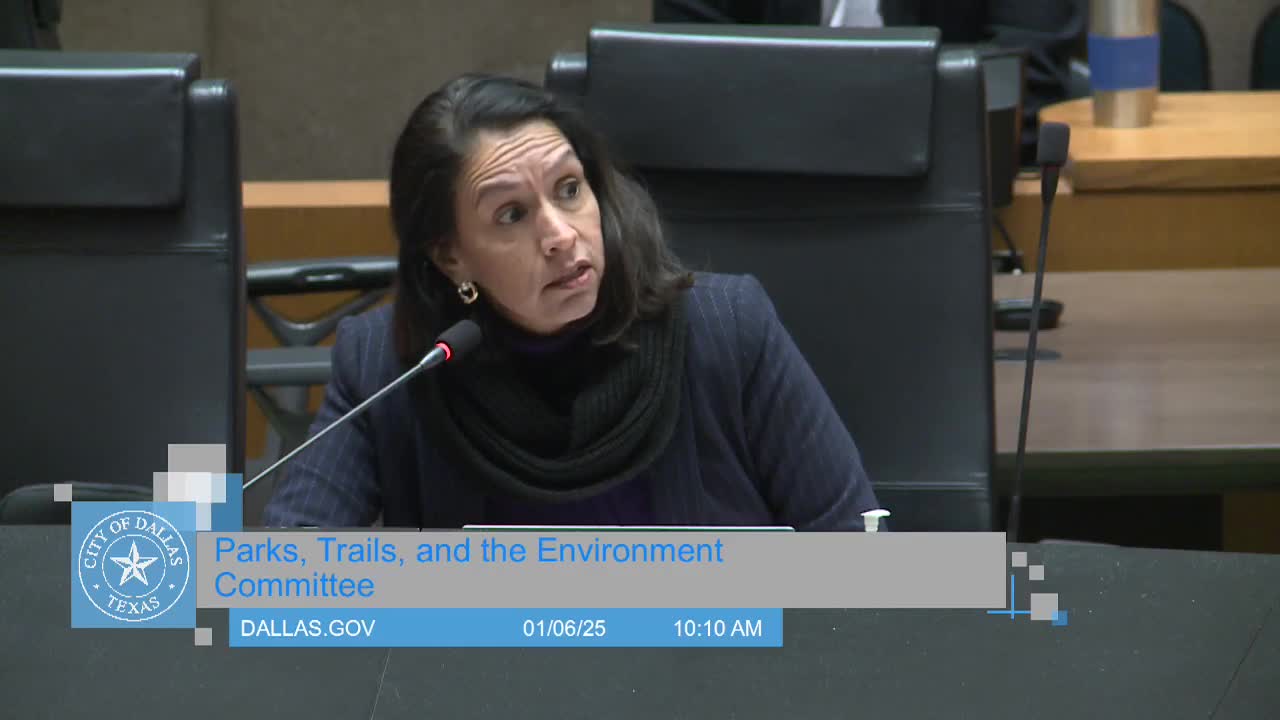State Fair of Texas reports record attendance, highlights safety upgrades and community giving
Get AI-powered insights, summaries, and transcripts
Subscribe
Summary
State Fair of Texas officials reported 2.38 million attendees in 2024, discussed perimeter security changes, pedestrian gate redesign, a new admissions structure and roughly $4.16 million in Fair Park improvements directed to Cotton Bowl renovations.
State Fair of Texas leaders briefed the Parks, Trails and Environment Committee on Jan. 6 on the 2024 fair season, reporting 2,380,000 attendees over 24 days, efforts to strengthen public safety and ways the nonprofit is investing in Fair Park and community programs year-round.
"It is our goal ultimately to be a very impactful nonprofit organization for 365 days a year, as opposed to just being a 24 day event," Mitchell (Mitch) Gleiber, president of the State Fair of Texas, told the committee as he outlined programs that operate outside of the annual event and philanthropic work that supports Fair Park.
The fair reported several operational changes and results that organizers said were introduced after prior safety reviews and the 2023 shooting incident. Organizers said they redesigned pedestrian gates and consolidated some entry points, increased screening stations and formalized a centralized incident command. The fair contracted Andy Frain Services for security operations under a multi‑year agreement and deployed drone detection systems. Officials said about 200 Dallas Police Department officers work daily on the grounds during the fair and that the revised bag and gun policies were implemented without significant operational problems.
Mitch Gleiber and Carissa Condellanas, senior vice president of public relations, also highlighted programming and community outreach. The 2024 fair delivered $1.3 million in college scholarships to more than 225 students, partnered with the North Texas Food Bank to collect $195,000 in food, and reported that the Big Tex Urban Farms program produced 26,360 servings of fresh produce for South Dallas partners in 2024. The fair also reported $4.16 million in Fair Park improvements for 2024 committed to Cotton Bowl renovations and more than $2.4 million in other capital and operations investments.
Gleiber told the committee the fair estimates substantial local economic impact: a University of North Texas economics group study attributed a core impact of about $422 million from the 2023 fair and secondary impacts that raised the estimated total economic effect to a range between $562 million and $680 million. The organization said about 22.8% of fairgoers come from outside the 13-county Dallas-Fort Worth region.
Committee members raised operational questions and asked staff to coordinate with external partners. Council members asked fair staff to work with DART on pedestrian routing around the MLK station during large-event days and requested a clearer year-over-year breakdown of Fair Park improvements and community grant allocations. A deputy mayor pro tem praised the fair—9s security changes and community engagement.
Organizers said they continue to explore non-fair season activations of Fair Park and potential participation in future large events, and reiterated that guest safety and infrastructure modernization (including fiber, utility upgrades and parking/tram changes) remain top priorities.
Ending: Fair leadership said the organization will continue to invest in public safety, Fair Park infrastructure and community programs and invited council members to consult on future planning and year‑round activation.
